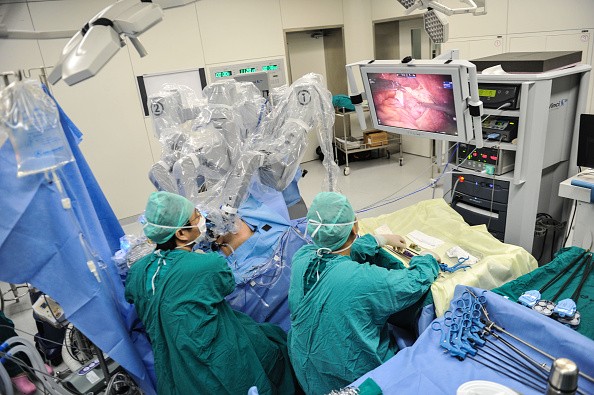A Chinese man whose fingers were partially severed in Ethiopia flew back to China and had them reattached 25 hours later, a feat local media has described as a medical “miracle.”
The 56-year-old technician, known only with the surname Chen, was in Ethiopia's capital of Addis Ababa to install and test equipment at a textile factory.
The accident occurred while he and local workers were installing the machine, which weighed 6-7 tons.
"Maybe there was a misunderstanding of my words," Chen said. "When I said OK, workers on one side let go of the machine while workers on the other side didn't, so the machine tilted."
According to Chen, he stretched out his right hand to support the machine, causing the weight to crush his fingers. He did not feel pain at first until he took off his glove, revealing his ring finger and little finger to be attached to the palm of his hand only by tendon and skin.
Doctors at a local hospital said they would try their best but suggested there was a huge chance his fingers would have to be amputated.
The boss of the textile factory, a Chinese national who has lived in Ethopia for a dozen years, suggested Chen to return to China for surgery where the chances of saving his fingers were greater.
Chen bought a ticket bound for Shanghai and, after an hour's delay and an 11-hour flight, arrived at the Shanghai Pudong International Airport where his colleagues were waiting.
He was then transported to Ruihua Affiliated Hospital of Soochow University in his hometown of Suzhou in eastern China's Jiangsu Province, where the two fingers were reattached in an operation lasting more than four hours.
Xiong Sheng, the director of hand surgery at Ruihua Affiliated Hospital, expressed astonishment upon learning the patient was flown straight from Ethiopia.
"Twenty-five hours had passed since his fingers were crushed, long past the golden time of six to eight hours to reattach a finger," Xiong said. "Besides, the high temperature in Ethiopia also made the chances small for the damaged fingers to survive."
Xiong admitted that he had no idea if the surgery would prove successful.
Fortunately, the fingers did not deteriorate and was soon capable of movement after being reattached and the blood vessels reconnected.
Chen reconnected to the hospital on Thursday, more than two months after the accident, for another operation to remove a steel pin planted on his fingers during surgery.
He is expected to recover shortly.



























